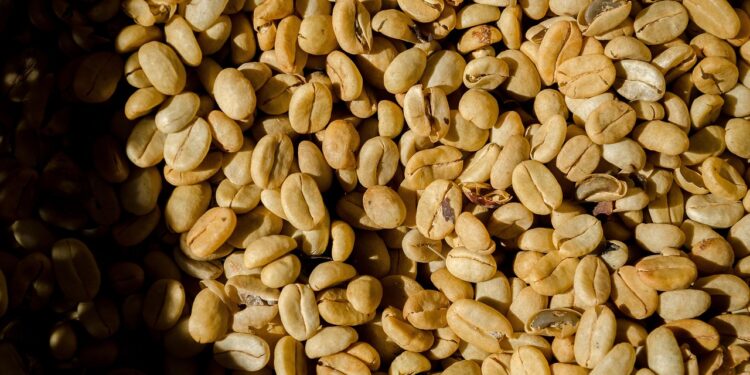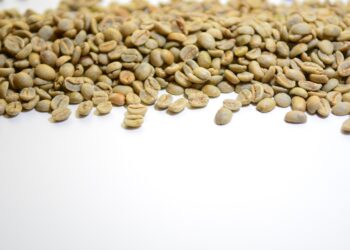Exploring the Bold Flavors of Robusta Beans
Robusta coffee beans, known scientifically as Coffea canephora, are hailed for their bold, robust flavor profile and higher caffeine content compared to their Arabica counterparts. This article delves into the distinctive characteristics of Robusta coffee, exploring its cultivation, flavors, advantages, and common questions surrounding its consumption and production.
Understanding Robusta Coffee Beans
Robusta beans are primarily harvested in regions with hot climates and abundant rainfall, with Vietnam, Brazil, and Indonesia leading the global production. Unlike Arabica beans that prefer higher altitudes, Robusta beans thrive at lower elevations, which contributes to their unique flavor profile and chemical composition.
The Flavor Profile of Robusta Coffee
One of the standout features of Robusta coffee is its robust and earthy flavor. It is often described as having a strong, somewhat bitter flavor with a grain-like overtone and a peanutty aftertaste. The higher caffeine content not only makes it a favorite for those seeking a morning boost but also contributes to its intense, somewhat bitter taste.
The Role of Caffeine in Robusta Beans
Robusta beans contain almost double the caffeine content compared to Arabica beans. This not only impacts the flavor, making it more bitter and strong, but also provides a natural defense mechanism for the plant against pests, contributing to the beans’ resilience and the plant’s robustness.
Cultivation and Production of Robusta Coffee
The cultivation of Robusta coffee beans is starkly different from that of Arabica beans, largely attributable to the plant’s hardiness. Robusta plants are less susceptible to diseases and can be grown in a wider range of climates and environments. This aspect makes Robusta coffee more accessible and economically viable for farmers in suitable regions.
Sustainability and Crop Yield
Robusta coffee plants generally yield more crop per acre and are less labor-intensive compared to Arabica coffee plants. This not only ensures higher productivity but also supports sustainable practices in coffee farming, offering long-term benefits for both producers and the environment. The robust nature of these plants often requires fewer pesticides and fertilizers, promoting a more natural growth cycle.
Health Benefits of Robusta Coffee
Beyond its bold taste and wakefulness-promoting effect, Robusta coffee offers a host of health advantages. Its high antioxidant content, particularly chlorogenic acids, plays a role in neutralizing free radicals and improving overall health. Furthermore, the increased caffeine content may boost metabolism and aid in fat burning, making it a popular choice among fitness enthusiasts.
Antioxidant Properties of Robusta Beans
The more significant levels of chlorogenic acid in Robusta beans not only enhance its unique flavor profile but also contribute to various health benefits. This includes potential roles in lowering blood pressure and having anti-inflammatory properties, offering more than just an energy boost to its consumers.
Robusta in Global Coffee Culture
Despite its strong presence in the global market, Robusta coffee often polarizes coffee enthusiasts due to its bold and acquired taste. In many parts of the world, particularly in Southeast Asia and Africa, Robusta is blended with Arabica to balance its harsher tones with the smooth and fragrant notes of Arabica.
Robusta’s Role in Espresso and Instant Coffee
Robusta beans are prominently used in espresso blends because of their ability to produce a better crema and offer an extra kick of energy due to their higher caffeine levels. Moreover, their stronger flavor and lower costs make them a popular choice in the production of instant coffee.
Common Questions About Robusta Coffee
Consumers often inquire whether Robusta coffee is superior to Arabica. While ‘superior’ is subjective, Robusta is favored for its bold flavor, high caffeine, and antioxidant levels, making it suitable for those who prefer a potent cup of coffee. However, Arabica tends to be more popular globally due to its sweeter, more aromatic flavor profile.
Is Robusta Coffee Better for Health?
Health-wise, both Robusta and Arabica offer benefits, but Robusta’s higher antioxidant and caffeine contents might edge it slightly ahead in terms of health perks. Nevertheless, moderation is key as excessive intake might lead to caffeine-induced side effects.
Conclusion
Exploring the robust and vivid world of Robusta coffee opens up a realm of flavors and benefits. Whether you’re a seasoned coffee lover or a newcomer to this energizing bean, understanding its properties, and how it compares to Arabica can enhance your coffee experience and appreciation. The bold flavors of Robusta beans not only cater to specific palates but also enrich the global coffee culture with its distinctive characteristics.
Embrace the strength and richness of Robusta in your next cup, and you might discover a new dimension to your daily coffee ritual.






